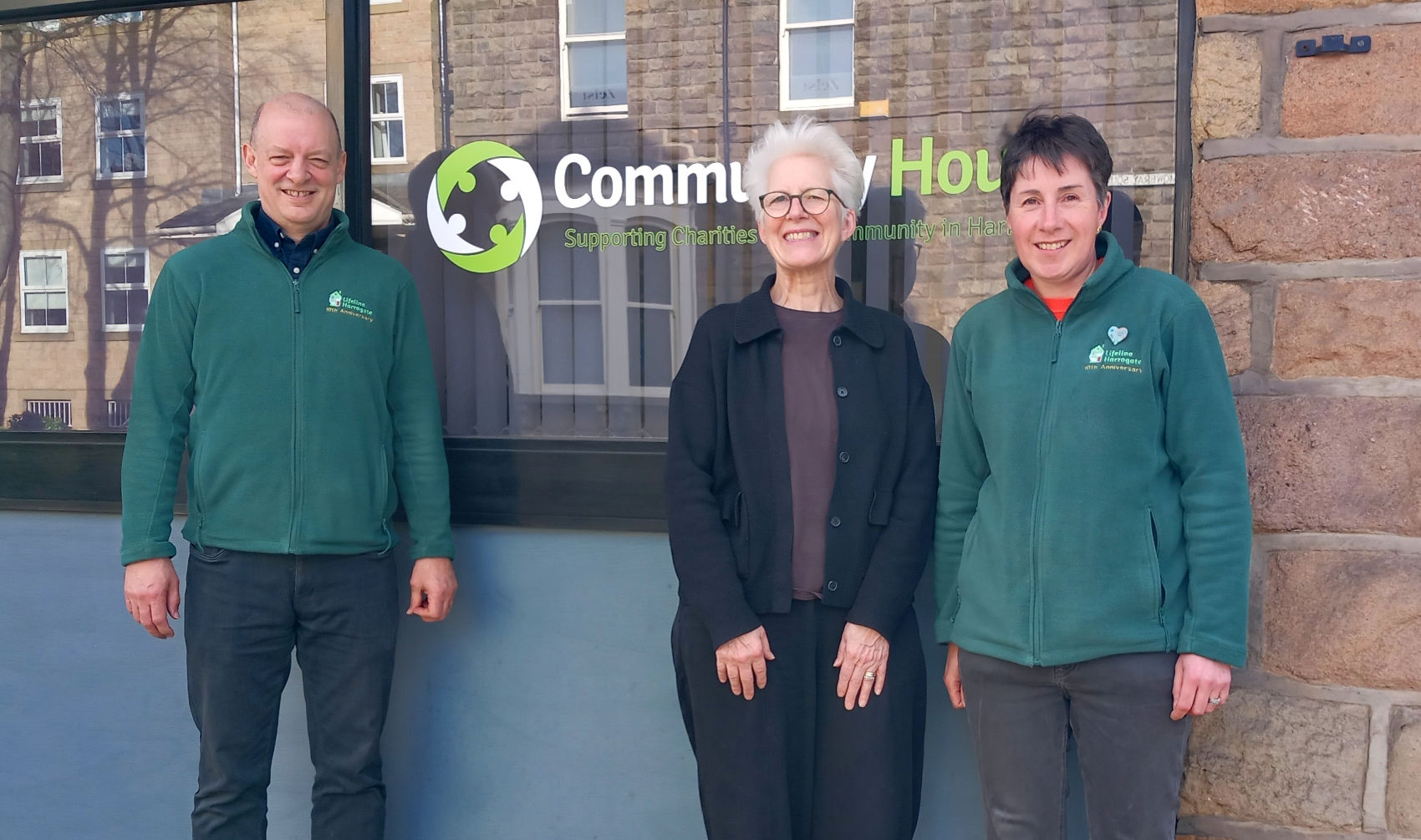Tens of thousands of people who are experiencing loneliness across North Yorkshire are set to be given more support through a county-wide strategy to help to tackle social isolation.
A new scheme is being launched to ensure that residents experiencing the effects of loneliness are given advice and help to prevent the profound impact that the isolation can have on their health.
North Yorkshire Council is co-ordinating the project, which is providing funding to charities and community groups to target those most in need, especially across the vast rural areas of England’s largest county.
Grants under the Stay Healthy, Independent and Connected project have been awarded to 25 organisations to help to point residents experiencing loneliness to specialist support and engage more in their communities.
Research has shown that loneliness can prove to be as harmful as smoking 15 cigarettes per day, and people enduring isolation are 50 per cent more likely to die prematurely than those with healthy social relationships.
North Yorkshire Council’s executive member for health and adult services, Cllr Michael Harrison, said:
The effects of loneliness are wide-ranging and often complex, and can affect anyone from any section of society.
It is obviously a problem that is of huge concern across the whole of the country, but in North Yorkshire there are very specific issues we are having to deal with.
So many communities live in deeply rural areas and it is often difficult to reach those most in need. But this new co-ordinated approach, which is being led by North Yorkshire Council, will provide life-changing support and help to ensure that we tackle loneliness as effectively as possible.
The new prevention grants were launched at the same time as the new council at the start of April and a total of £450,000 in funding is being provided through the authority’s health and adult services directorate.
The funding is being used to help promote activities and events through community organisations, such as luncheon clubs, coffee mornings and gardening clubs to engage with people experiencing loneliness.
Work is also under way to support community transport schemes to ensure that those experiencing loneliness are given the ability to travel to events.
The project is building on the close links that were forged with community support organisations, which proved invaluable during the Covid-19 lockdowns, as well as existing initiatives, such as the council’s Living Well service.
The free initiative aims to improve the health, well-being and independence of adults, with co-ordinators providing support for people who are often experiencing social isolation.
The prevention grants will also dovetail with an existing scheme to create community anchors across North Yorkshire.
A total of £1.5 million in funding, which was announced in March and will be spread over the next three years, will help to build the capacity of community and voluntary groups to act as key points of contact for the council, providing hubs for the public to access advice and support and to increase resilience in communities.
North Yorkshire Council’s executive member for corporate services, Cllr David Chance, whose portfolio includes promoting stronger communities, said:
Communities throughout North Yorkshire have come together in recent years through some of the toughest of times, helping the most vulnerable members of society through Covid-19 and now the cost of living crisis.
We are committed to helping ensure that these strong community links are nurtured and grow to provide support for anyone who feels the effects of social isolation.
It is estimated that as many as 30,000 residents aged 16 and over may be experiencing chronic loneliness in North Yorkshire – which equates to about six per cent of the county’s population.
The latest available data has shown that 105,000 residents – 17.5 per cent of North Yorkshire’s population – have been diagnosed and are living with a health condition or disability. A total of 39,000 residents have been widowed and 132,490 people in the county are single.
Among those community organisations which will benefit from funding through the new prevention grants is Skipton Step Into Action, which was established during the Covid-19 pandemic.
The group was launched in March 2020 just before the first lockdown and 360 volunteers were recruited to collect shopping and prescriptions for the most vulnerable members of society.
A need was identified to support people who are feeling socially isolated, and a series of initiatives have been set up, including the Ground Yourself in Green project which is held in Aireville Park in Skipton. A series of activities including arts and crafts, yoga and mindfulness events are held on Thursday each week between April and September.
A well-being café has also been established and transport services are being developed after a wheelchair-accessible vehicle was bought by the group.
Skipton Step Into Action’s founder and chief executive officer, Charlotte McKeown, said:
The pandemic highlighted issues with social isolation that were already evident, but it brought into sharp focus that there are so many people out there who need help and support.
Collaboration is so important across the whole of the voluntary sector, as we are able to help support and bring together our resources.
Having one council now will make sure there is a strong voice for us all, and it will help to make sure that the services we provide are as effective and as efficient as possible.
The effects of loneliness are affecting all sections of society, but often those in the younger generations in North Yorkshire as they are often living in countryside communities and are faced with travelling significant distances to be with friends.
A total of 52,000 young adults aged 16 to 24 years – the equivalent of 8.5 per cent of North Yorkshire’s population – have reported feeling lonely more often than those in older age groups.
More information on the support and activities available from Skipton Step Into Action is available at www.ssia.org.uk online.







